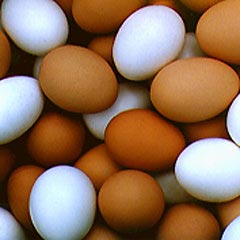
I found a very useful article in the last issue of Impact Magazine which I picked in Talisman. I, first, became familiar with the magazine once I was in Mountain Equipment Co-op about 3 years ago, I guess.
The article talks about protein and I summarize what’s the most useful part here for anyone who’s interested and I encourage you to go through and finish it ‘cause it really helps:
- A number of bodily functions and substances are dependent on protein in our daily diet or more specifically amino acids which they are comprised. How the body works in that matter is the body digest them and then they are shipped off to different parts to be used. So basically lack of protein will cause serious problems for the body, mostly because amino acids do what’s described herein after.
- Amino acids repair muscles and connective tissues (tendons as far as I know), supporting the nervous and immune system (It’s very likely to get sick soon if you don’t feed your body with enough protein), creation of hormones, enzymes, nails, hair and in some cases providing an energy source (remember that having protein doesn’t necessarily mean that you have enough energy for your activities and that’s very important)
- Important point: Vegetable protein sources only contain some amino acids and must be combined in order to yield a complete protein.
- Eggs (any kind) are considered the perfect protein. They contain all the essential amino acids along with a wide array of other vitamins and nutrients. It’s the best-absorbed type of protein. Its biological value is considered 100 and all other sources are measured with respect to egg. Examples are:
a. Milk = 91
b. Beef =80
c. Soy = 71 - For non-athletes a 0.86 g per Kg of body mass per day is sufficient for meeting the body’s requirements and preventing deficiencies.
- For endurance athletes, however, it’s a range of 1.2 to 1.4 g per Kg of body mass. For example for a person like me who does daily exercises the appropriate amount of protein would be 88 (Kg) times 1.3 g makes almost 114 g per day.
- Very important: As the amount of protein in daily diet increases, so too should water intake. The reason is the by-product of protein is ammonia and that must be converted to urea and excreted.
- Extremely important (actually I guess all of them are!): The athlete must avoid taking proteins in short duration exercises (less than 150 min.). First of all because protein is not a good source of energy. The body is dependent on carbohydrate in the first 120 to 180 min. of exercise. Secondly protein is slowly digested and only restrains absorption of carbohydrates.
- Protein is not stored in the body for later use like glucose does. Protein must be provided after endurance workout. But remember to take carbohydrates with protein as they help the absorption. A good combination would be 3:1 carbohydrates to protein.
- The appropriate amount of carbohydrate is 0.5 g per pound of body weight.
No comments:
Post a Comment